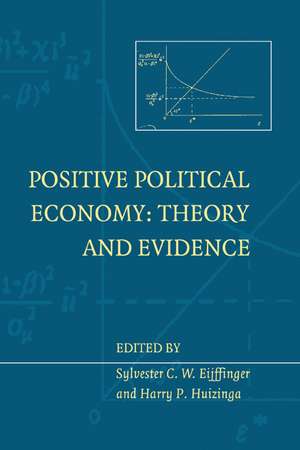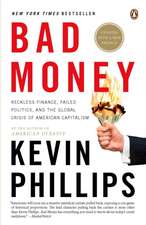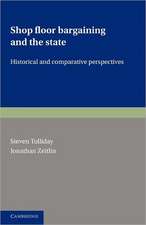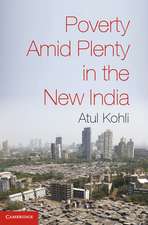Positive Political Economy: Theory and Evidence
Editat de Sylvester C. W. Eijffinger, Harry P. Huizingaen Limba Engleză Hardback – 8 mar 1998
Preț: 447.25 lei
Preț vechi: 502.53 lei
-11% Nou
Puncte Express: 671
Preț estimativ în valută:
85.58€ • 89.76$ • 71.24£
85.58€ • 89.76$ • 71.24£
Carte tipărită la comandă
Livrare economică 01-15 aprilie
Preluare comenzi: 021 569.72.76
Specificații
ISBN-13: 9780521572156
ISBN-10: 0521572150
Pagini: 316
Ilustrații: 36 tables
Dimensiuni: 156 x 236 x 26 mm
Greutate: 0.64 kg
Ediția:New.
Editura: Cambridge University Press
Colecția Cambridge University Press
Locul publicării:Cambridge, United Kingdom
ISBN-10: 0521572150
Pagini: 316
Ilustrații: 36 tables
Dimensiuni: 156 x 236 x 26 mm
Greutate: 0.64 kg
Ediția:New.
Editura: Cambridge University Press
Colecția Cambridge University Press
Locul publicării:Cambridge, United Kingdom
Cuprins
Preface; 1. Introduction Sylvester Eijffinger and Harry Huizinga; Part I. Monetary Institutions and Policy: 2. Reputational versus institutional solutions to the time-consistency problem in monetary policy Susanne Lohmann;3. Monetary Union and monetary federalism: reciprocity political business cycles Jürgen von Hagen;4. The ultimate determinants of central bank independence Sylvester Eijffinger and Eric Schaling; 5. Central bank autonomy and exchange rate regimes - their effects on monetary accommodation and activism Alex Cukierman, Pedro Rodriguez, and Steven Webb; 6. Uncertainty, instrument choice, and the uniqueness of Nash equilibrium: microeconomic and macroeconomic examples Dale Henderson and Ning Zhu;7. New empirical evidence on the costs of European Monetary Union Hélène Erkel-Rousse and Jacques Mélitz; Part II. Exchange Rate Policy and Redistribution: 8. Exchange rate anchors and inflation: a political economy approach Sebastian Edwards;9. Why capital controls? Theory and evidence Gian Maria Milesi-Ferretti;10. The political economy of the Exchange Rate Mechanism Patrick Minford;11. Unemployment benefits and redistributive taxation in the presence of labour quality externalities Harry Huizinga; Index.
Descriere
The first coherent empirical investigation of positive models of political economy.

















